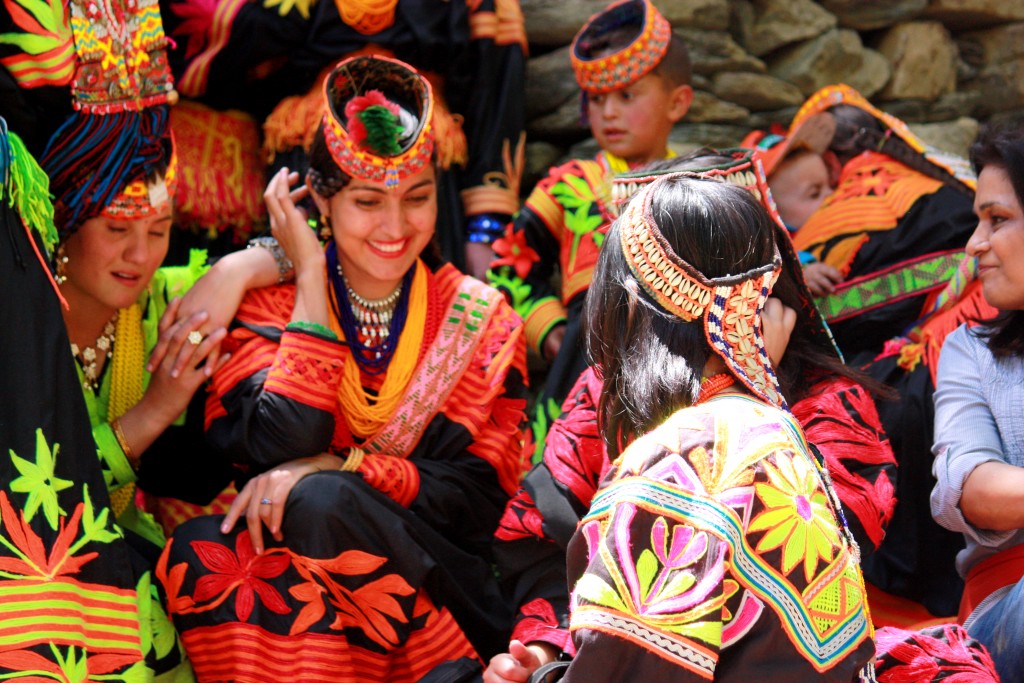0 of 10 questions completed Questions:
Every country has unique clothing items that are both interesting and beautiful. Time to brush up on your fashion knowledge for the world’s catwalk.
You have already completed the quiz before. Hence you can not start it again.
Quiz is loading...
You must sign in or sign up to start the quiz.
You have to finish following quiz, to start this quiz:
0 of 10 questions answered correctly
Your time:
Time has elapsed
You have reached 0 of 0 points, (0) Well, as Heidi Klum would say, in the fashion world one day you’re in and the next day…you’re out! It wouldn’t hurt to Google other cultures from time to time! As you’d say in Mexico, ni muy muy, ni tan tan; meaning you’re neither here nor there! Excellent job! You’ve got plenty of inspiration for your new collection for the New York Fashion Week! Made from sheepskin, rabbit or muskrat fur, these hats help Russians keep warm during the cold winter. Do you know what they’re called? That’s right! The ushankas were part of the compulsory army uniform as troops vulnerable to the cold would die from it. Sorry! The ushankas were part of the compulsory army uniform as troops vulnerable to the cold would die from it. Do you know which country’s farmers still use clogs today? That’s right! The oldest wooden clogs found in Europe are from Amsterdam and Rotterdam and they date from between 1230 and 1280. Sorry, it’s the Netherlands! The oldest wooden clogs found in Europe are from Amsterdam and Rotterdam and they date from 1230 and 1280. No piece of clothing is as simple and versatile as this almost 9-meter long, beautifully decorated piece of fabric (which is most commonly worn in India). Excellent job! Did you know there are over 80 ways to wrap a sari? Sorry! Did you know there are over 80 ways to wrap a sari? The tartan patterned kilt is a tradition from which country? That’s right! Underwear may or may not be worn beneath the kilt, although tradition states that a true Scotsman wears nothing under his kilt. It’s a Scottish tradition! Underwear may or may not be worn beneath the kilt, although tradition states that a true Scotsman wears nothing under his kilt. These beautiful and elaborately beaded necklaces and accessories are worn by which tribe in Africa? Correct! Before having contact with Europe, the beadwork was made from natural resources, whereas today they are made from glass beads. It’s the Maasai tribe! Before having contact with Europe, the beadwork was made from natural resources, whereas today they are made from glass beads. The farmers of southeast Asia wear this hat to protect themselves from the sun while working in the fields. Do you know its name (in English)? That’s right! If the conical hat is made of straw, it can be dipped into water and used as an evaporative-cooling device. Sorry, it’s called a conical hat. If the hat is made of straw, it can be dipped into water and used as an evaporative-cooling device. That’s right! The huipil is mostly used in Mexico and Guatemala and the creation technique is unique and complicated. Sorry! The huipil is mostly used in Mexico and Guatemala and the creation technique is unique and complicated. Which lovely Latin American country has the sombrero vueltiao as one of its national symbols? That’s correct! The majority of these handmade sombreros are made by the Zenú in Córdoba and Sucre. Sorry, it’s Colombia! The majority of these handmade sombreros are made by the Zenú in Córdoba and Sucre. The Japanese are the proud owners of this beautiful piece of clothing. Do you know its name? That’s right! The typical kimono has twelve or more pieces that have to be matched and secured in specific ways, which is why a licensed professional kimono dresser is often called upon. Sorry! The typical kimono has twelve or more pieces that have to be matched and secured in specific ways, which is why a licensed professional kimono dresser is often called upon. Arab women are covered from head to toe, but each part of their outfit has a name. Do you know what the headscarf that covers the neck and head is called? That’s right! Hijab means “screen” or “curtain” in Arabic; it is used in the Quran in reference to a partition. Sorry! Hijab means “screen” or “curtain” in Arabic; it is used in the Quran in reference to a partition.Quiz-summary
Information
Results
Categories
1. Question
2. Question
3. Question
4. Question
5. Question
6. Question
7. Question
8. Question
9. Question
10. Question
[Images: Manalahmadkhan; Petar Milošević; Berkh; Unnatisilks; Artifex; PublicDomainPictures; Oliver Spalt; StellarD; Daniele Peroni; sth; Annuarsalleh]
